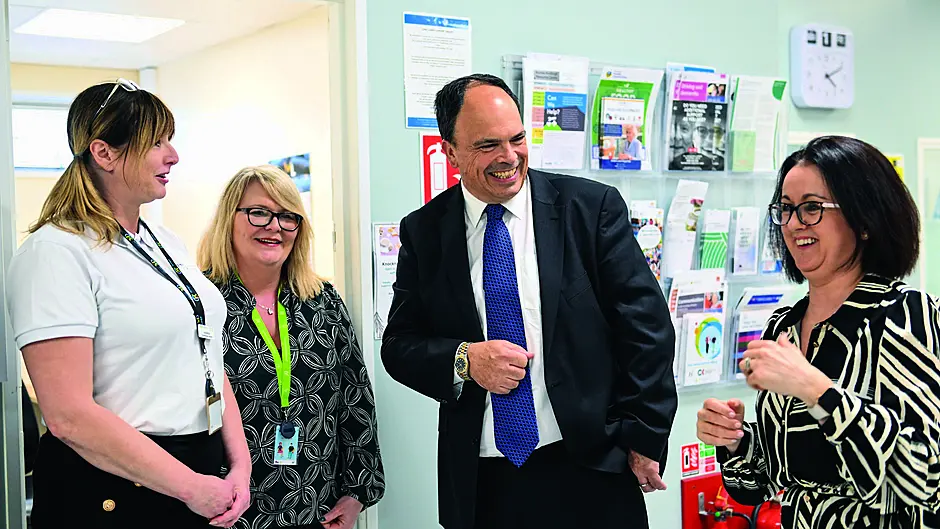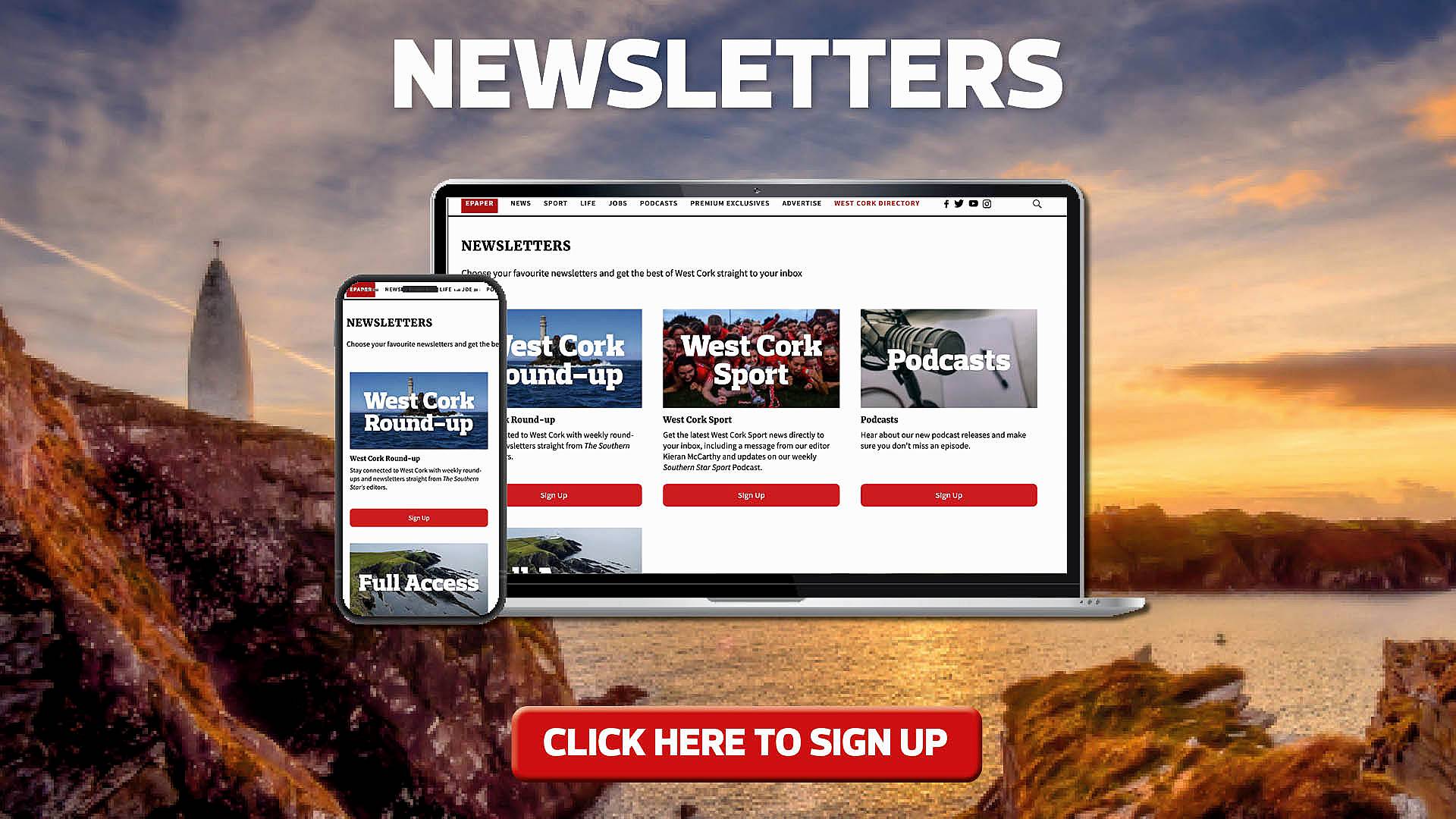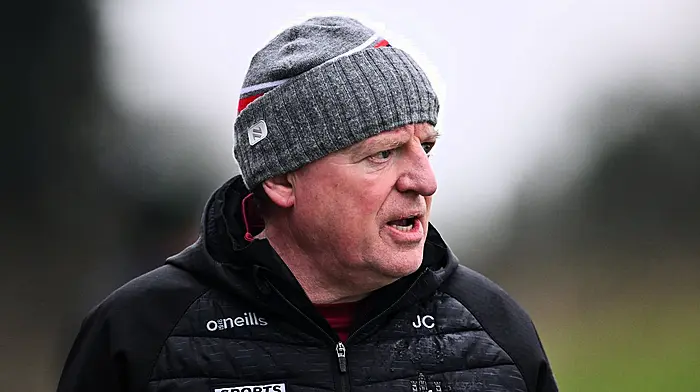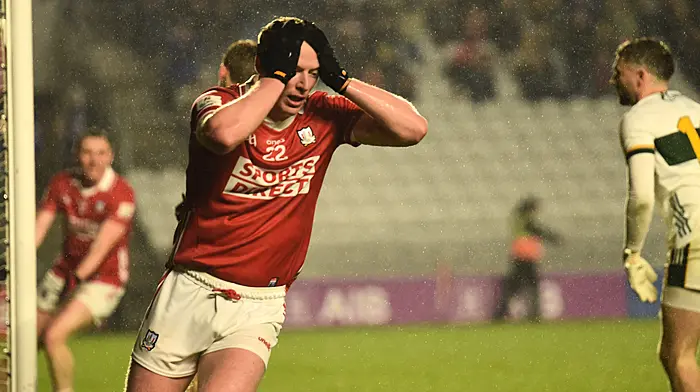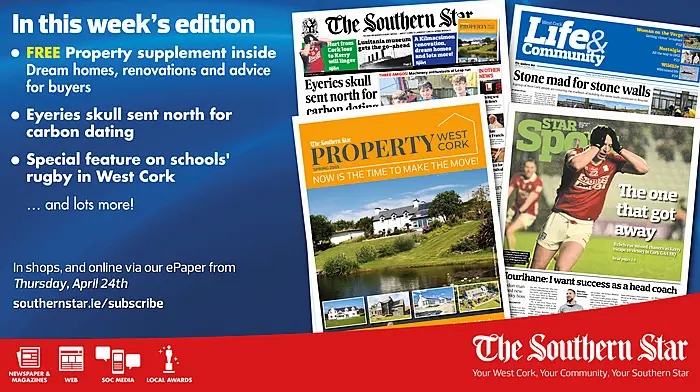COMMUNITIES are being put at the heart of an innovative new health strategy being rolled out across the region aimed at preventing cancer.
Cancer is something that has affected every one of us – whether ourselves, a member for our family, or friends in our community. Community is now the focus for plans to reduce cancers.
The new approach will see hospitals in the HSE’s Cork South and West region linking up closely with researchers at UCC, and communities in West Cork and other areas, as the strategy is rolled out.
Prof Mark Corrigan is a surgical oncologist based at CUH, who lives in Kilmurry.
He is the clinical lead on a programme called ‘Transforming Theatre,’ which aims to increase surgical capacity across the region.
He is also focused on the new preventative cancer strategy. Prof Corrigan says that while we are improving cancer management – in some instances to world-class levels in the field – more emphasis needs to be put on prevention.
‘Our ambition is to establish a national prevention centre in the Cork and Kerry region, which we envision becoming a European hub for disease prevention and early detection,’ said Prof Corrigan.
‘We want to help empower people manage their own health risks. The initiative is being driven by this region and the system will try to prevent people going down the road of serious illness.’
A dedicated team of experts – in the community, in hospitals, and in university research – is working together to try to achieve this.
‘Our aim is to ensure that as many people as possible across our community, regardless of background or ability, have access to this support,’ said Prof Corrigan.
Dr Andy Phillips, regional executive officer for HSE Cork South and West, says the plan is about connecting hospitals, primary care, and community services to give people at home the knowledge and resources to manage their own health proactively.
‘Really this is about giving people the power to manage their own health and living healthily to enjoy life to the full,’ he said.
And the idea of being a European and world leader in the field isn’t a fantasy. One recent initiative is the development of a cancer genetics programme in the south west. ‘This is the only structured public service of its kind outside Dublin,’ said Prof Corrigan.
‘This programme is providing genetic testing for cancer patients and their families, reducing the wait time for counselling and testing from two to three years to under two months. It doesn’t matter where you are living – whether you’re in Castletownbere, Clonakilty, Cork city – you have access to this service and these tests within six weeks.’
A psychologist and three new dedicated reconstructive plastic surgeons are providing further support to genetic patients and their families.
‘In the next few months we hope to gain access to a dedicated operating theatre for genetic carriers who seek risk-reducing surgery,’ said Prof Corrigan.
The prevention service has been shortlisted for a national excellence award.
And as the cancer prevention strategy is rolled out in communities, it will prevent even more cancers, and save even more lives.
This is just one strand of the new approach focused on prevention and early detection.
Health centres in West Cork will play an increasing role.
‘These initiatives are being driven by this region. This should be very empowering for the community,’ said Prof Corrigan.
‘The system is trying to prevent people going down the road of serious illness. This is ultimately what we want to do and the rest of the country to follow.’
A key part of the new thinking involves working with partner research programmes at UCC providing a joined-up approach and ensuring research work is not done in isolation from the experiences on the ground in the community.
Dr Elaine Lehane from Castletownbere is the head of nursing and midwifery studies at UCC. ‘My mum is from Shannonvale in Clonakilty, and my dad is originally from Allihies. I grew up in Castletownbere and still go down there all the time to visit family,’ she said.
Elaine Lehane is married to Mark Corrigan so there’s also an added element of bringing work home for both!
But Dr Lehane believes the structure of communities like Castletownbere are inspirations for parts of cancer strategies can work.
‘Coming from West Cork, when the proverbial hits the fan, the community comes together. I would have seen that all my life growing up because of the many fishing tragedies. You would see communities coming in to help families, you’d see those rallying aspects, and you’d see the infrastructure that is in communities as well, both formal and informal, and that’s something that I suppose the whole health system hasn’t tapped into. In some ways that’s what the primary care centres are trying to mobilise. So I think that it’s the perfect storm, in a good way, in that in the acute hospital care, the community, and the university, there are three big institutions coming together.’
The partnership approach with UCC is already ensuring more inclusive access for all members of community, including those with mixed abilities and neurodiversity.
Elaine is working with a group of women with mixed abilities from the community as part of a research project.
Talking about cancer with these women empowers them with knowledge for their own lives, as well as better informing healthcare professionals of their needs.
Helping people, not only to access information, but also to distinguish between the real and the ‘fake news’ is another important element.
Dr Lehane recalls a meeting with a patient 20 years ago who was suffering from cancer.
‘You have certain cases that will always stay with you, it doesn’t matter what. And I met this lovely woman who came into us because she was in pain.
‘We discovered an obvious cancer on her breast but she had been treated by a herbalist for about 18 months. By the time she had come in and presented to us, the cancer had spread to her bones. There is merit in complementary therapies, but this cancer had only been treated with herbs.’
With this in mind, Elaine says we need to be better informed, and to be aware which sources of information to trust.
That is a further element of the community strategy.
‘Research often ends up on dusty bookshelves or on obscure specialist websites, but that’s not how it helps people. Given all the effort that goes into conducting research, we need to make the research work for everyone in our community. Good research has the power to change lives, but only if we take it off the shelves and put it to work.’
Prof Corrigan goes back to the idea of informed choices.
‘We will work diligently to use all available resources in the region to help people to: know the facts – own your risk – decide for yourself.
‘Some of these risks are within our control, such as those related to lifestyle and environment. Others require the support of healthcare teams. Our goal is to improve both.’

